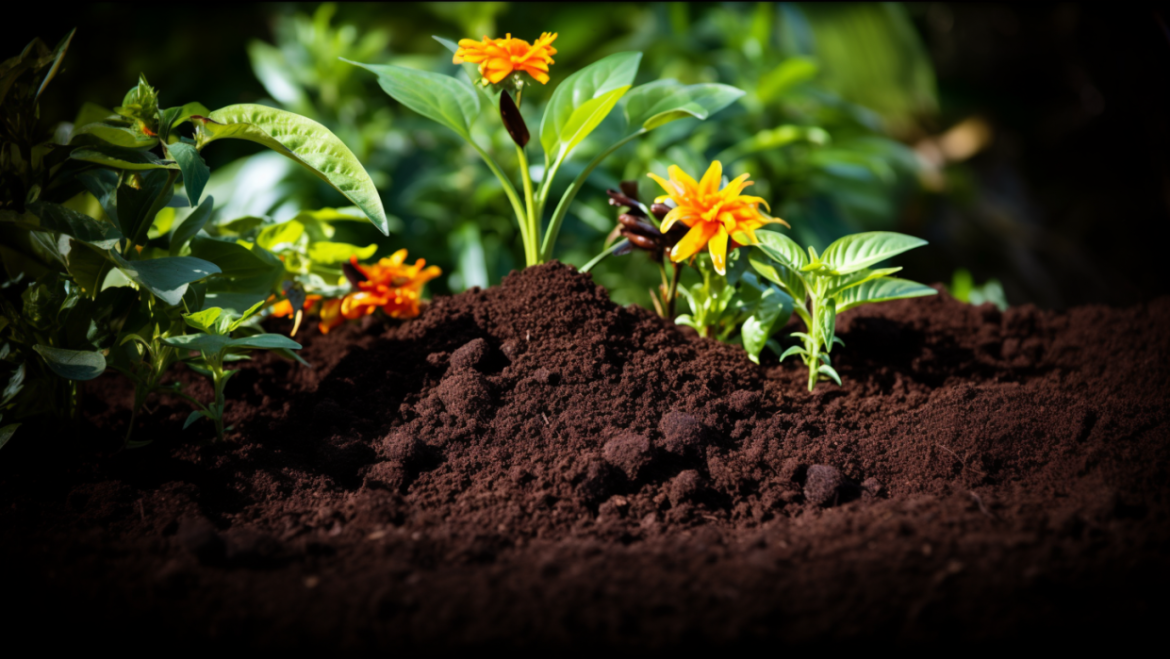Gardening enthusiasts are always looking for new ways to improve their soil naturally and save money without sacrificing plant development. Using ground coffee beans is an unorthodox yet fascinating option. In this article, we'll examine the pros and cons of using ground coffee beans in your green areas, so you can make an informed decision.
Exploring Coffee Beans for a Moment
The remains of coffee that have been brewed are known as coffee grounds. They are recognised for their capacity to strengthen the structure of the soil, increase the amount of water that is retained in the soil, and supply the soil with important nutrients. They are rich in organic material.
A Profusion of Nutrients and a Cornucopia of Essential Minerals
The spent coffee grounds are a rich source of several nutrients, some of the most important of which being nitrogen, phosphorous, and potassium, sometimes known as the "N-P-K" trinity of plant nutrition. In addition, they include micronutrients such as calcium, magnesium, and copper, which are elements that are essential for the healthy development of plants.
Structure of the soil and water retention: a beautiful symphony of permeability and accumulation
The coarse texture of coffee grinds improves the soil's ability to breathe, makes it easier for water to penetrate the soil, and encourages the growth of beneficial microorganisms. Their capacity to retain water is a blessing in areas that get a meagre amount of precipitation.
Is There a Mutually Beneficial Relationship Between Ground Coffee Beans and the Growth of Plants, or Is This an Attempt Gone Wrong?
The discussion that surrounds the use of used coffee grounds as a fertiliser in gardening includes both laudatory remarks and words of warning. A thoughtful analysis of the benefits and drawbacks may be found here.
The Pros consist of: There are some encouraging signs.
Enhancement of Organic Matter The spent coffee grounds are a rich source of organic material that may improve the structure of the soil and create an environment that is beneficial for the development of plants.
Restoring the Soil's Nutrient Levels The nutrient-rich profile of used coffee grounds makes them an excellent natural fertiliser. This increases the nutrient level of the soil while simultaneously decreasing the need for synthetic fertilisers.
Enhancement of Microbial Activity The grounds foster the growth of a robust microbial community, which is essential to the maintenance of good soil.
The Important Notes: An Advisory Word of Caution
Concerns Regarding Acidity It is a widespread misunderstanding that used coffee grounds are acidic and have the potential to bring the soil's pH down. However, throughout the brewing process, the vast majority of the acidity is neutralised, turning the grounds into something that is either nearly neutral or mildly acidic.
Excessive application may result in soil compaction, decreased water infiltration, and nutritional imbalances. This can be caused by applying coffee grinds in excessive amounts. It is of the utmost need to practise moderation, and one possible solution to alleviate these worries is to mix the grounds with other organic stuff.
How to Make the Most of Ground Coffee Beans in Your Garden, According to a Connoisseur's Perspective
Step-by-step: A Cautionary Method for Handling Coffee Grounds Input required
Testing the pH of the Soil It is a good idea to test the pH of the soil before adding coffee grinds to make sure it is within a range that is beneficial to the plants you want to grow.
The Crucial Role of Moderation Start with just a little quantity of coffee grounds and monitor how the soil and plants respond to the addition of the grinds over time.
Composting: Prior to application, coffee grounds should be composted in order to unlock their full nutrient potential and alleviate any concerns regarding soil compaction. Alternative Applications: Beyond the Soil Coffee grounds can also be utilised as a natural pest deterrent or as a mulching material, broadening their utility in the realm of gardening.
Conclusion
The story of ground coffee beans and plant development is one of possibility, with a pinch of caution thrown in for good measure. Gardening lovers may unearth a new ally in their pursuit of a successful garden if they approach this organic modification with a critical eye and a careful touch.




Add Comment